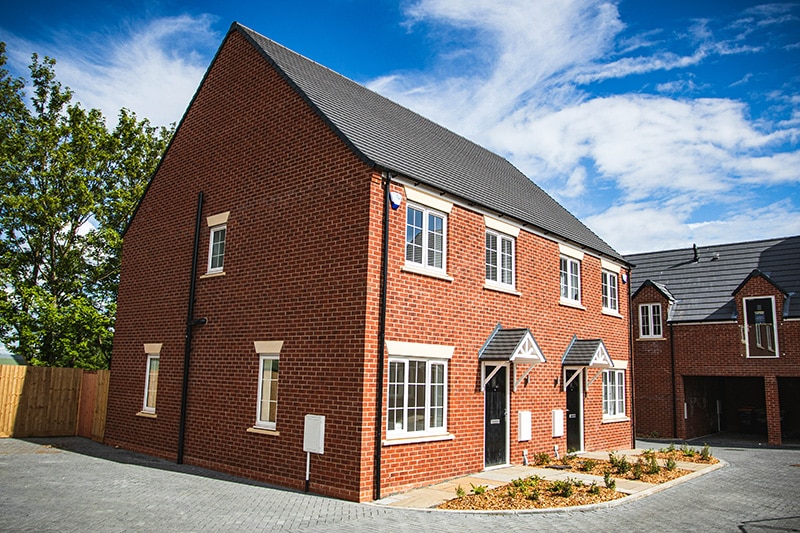Do home buyer surveys include asbestos checks in the UK?
When you have a home buyer report undertaken on a residential property that interests you, an expert assessment of the building’s condition will be provided.
This information will help give you a sense of how much money you might need to spend on the property after purchasing it – for example, to carry out vital repair work. The details contained in the home buyer report could even enable you to negotiate a lower price for the property, or it might cause you to rethink whether it would be a wise idea to buy the property at all.
As we will set out in the next section of this article, home buyer reports are by no means all the same; three types of survey exist, with these differing in the level of detail they provide.
If, however, you are reading this as someone who is looking to purchase a residential property in the UK, you might have wondered whether any homebuyer report you order will also include checks for asbestos.
Asbestos is a now notorious, albeit naturally occurring fibrous silicate mineral, that was once widely used in the UK construction industry. Asbestos-containing materials (ACMs) are still present in many UK properties constructed or renovated prior to 1999, which was when use of the substance in the construction industry was banned, on account of the health risks it posed.
So, can you depend on a homebuyer report alone to inform you about any asbestos (or suspected asbestos) materials in a residential property that you are considering buying? Below, we have sought to answer this question in detail.
What types of home buyer surveys are there?
A home buyer report is a survey that provides an authoritative assessment of the condition of a residential property. For the person who is contemplating the purchase of a given property, a home buyer survey can provide information that guides their subsequent decision-making – such as whether to go ahead with the purchase, as well as in relation to any repairs that may be necessary.
There are three types, or “levels”, of home buyer surveys, and the one that you choose should be based on the property’s age and condition, rather than a wish to save money. After all, arranging for a home buyer report that is insufficiently detailed could prove a false economy, leaving you oblivious to certain issues with the property that you need to know about, and that could be expensive to fix.
So, if you are interested in having a property survey carried out, you will need to choose one of the below three types (the acronym “RICS” here refers to the Royal Institution of Chartered Surveyors):
- RICS Home Condition Report (HCR)
This is the most basic of the three types of home buyer survey; it uses a simple “traffic light” system in relation to key aspects of the property’s condition. It includes checks on services to the property, such as water and gas, but doesn’t include any advice or a valuation.An HCR – which will cost you around £400 – will draw attention to any urgent risks or defects, but can only be considered a very basic survey. It is best suited to new-build properties and conventional homes in good condition.
- RICS HomeBuyer Report (HBR)
If the property that you are thinking of purchasing is relatively conventional and in reasonable condition, this is the circumstance in which you might be especially likely to consider an HBR. Costs for this type of survey are about £400 to £1,000, depending on the home’s value.An HBR doesn’t look behind the walls or beyond the floorboards. Nonetheless, this type of survey will help you learn about any potential hidden issues inside and outside the property, which may include structural problems such as damp or subsidence.A property valuation is often included in an HBR. But even if this isn’t the case for the one you receive, the report’s suggestions for repairs could still be very useful in enabling you to negotiate a lower purchase price for the house.
- RICS Building Survey
Priced anywhere between approximately £800 and £1,500, this structural survey is the most comprehensive available home buyer report. If you desire an in-depth evaluation of the condition of a property, including the use of a 1, 2, and 3 rating system to highlight any serious problems requiring attention (and the consequences of failing to tackle them), this is the survey to choose.It is a particularly good idea to request this form of home buyer survey if you’re looking to purchase an older or larger house, or if you intend to carry out major works at the property.A Building Survey isn’t able to look under floorboards or behind walls. The final report, however, should include the surveyor’s opinion on the potential for hidden issues in these parts of the property.
Do home buyer surveys report on the presence of asbestos?
The importation and use of asbestos in the UK has been banned since 1999. Despite this, the substance is still thought to be present in around 70% of residential properties in Britain.
In case you were wondering, it is perfectly legal to sell a UK home that contains asbestos; however, if the seller knows there is asbestos in the property, they must inform you of this. In the event that they know asbestos exists in the building and they fail to tell you this, they would be breaching the Property Mis-descriptions Act 2013. However, it is also important to bear in mind that sellers can sometimes be genuinely unaware of asbestos being present in their properties.
So, if you arrange for a home buyer survey to be undertaken at a property you are thinking of buying, can you presume an asbestos survey is included in it? The short answer to this question is “no”, unless you have specifically engaged the services of an asbestos professional.
Presuming this isn’t the case and you have simply arranged a standard home buyer report, the building surveyor can identify materials that they suspect to contain asbestos. But it is not the building surveyor’s role to find asbestos in the property, or to determine whether certain suspect materials are or are not asbestos.
The building surveyor’s job is, instead, to seek out and identify defects of any kind in the property. This means there are limitations to the sheer comprehensiveness and depth of results they can provide in relation specifically to asbestos.
The complexity of the task of answering this question is heightened by the fact that – as we outlined above – there are three different “levels” of home buyer survey. Of those, you definitely can’t expect an HCR or HBR to identify all instances of asbestos in a property surveyed, and even a full structural survey might fail to pinpoint all examples of the dangerous material in a building.
When and why are asbestos checks necessary?
It is worth emphasising that there isn’t a strict legal requirement for prospective buyers of a residential property to arrange for an asbestos survey to be carried out on it. So, you will need to make your own judgement on the need for – and wisdom of – having an asbestos survey undertaken on the house you are considering purchasing.
During the later 20th century, as public awareness grew of the health risks the substance posed, the UK construction sector began to phase out the use of ACMs. This means that, in practice, properties built since around the mid-1980s are very unlikely to contain asbestos in their fabric, even though the final ban on all types of asbestos was only imposed in late 1999.
If, however, the property you are considering was built or renovated well before the 1999 ban, you might decide to have an asbestos check carried out on it, even if you simply do this for your own peace of mind.
An asbestos survey will be especially important if you intend to carry out building works at the property that could cause any ACMs to be disturbed, given the scope for dangerous fibres to be released into the air if such disturbance occurs.
Are additional asbestos surveys necessary?
Different types of asbestos survey exist; a management survey is considered the “standard” asbestos survey. It is non-intrusive, and effectively constitutes a surface-level inspection, albeit with samples able to be collected if necessary.
Despite the non-intrusive nature of a management survey, from the perspective of the typical homeowner, it provides a very good picture of any asbestos in the building of which they need to be aware. It will highlight most of the asbestos risks that could conceivably be presented in your new home, so that you can make sensible and informed decisions in light of this knowledge.
If you do intend to carry out more disruptive work at the property following purchase – such as refurbishment – you should arrange for a more intrusive survey to be completed in targeted areas of the building.
What are the implications of finding asbestos?
Presuming you arrange for a residential asbestos survey to be carried out on the property, and asbestos is subsequently identified, you can expect an asbestos management plan to be provided.
The report accompanying the survey results will make recommendations on what to do next. ACMs are generally believed to pose negligible risk to health if they are in good condition, undamaged, and undisturbed. So, if this is the case for any ACMs spotted in your property, the report may recommend that they are left in place.
In such circumstances, you may opt to have a special coating or covering applied to the ACMs to guard against any possibility of them being disturbed in the future. Indeed, this may be considered a safer course of action than attempting to remove the substance from the building.
Conclusion: a home buyer survey may not be enough if you are concerned about asbestos
Hopefully, this guidance will have left you feeling more informed about the situation of asbestos in UK residential properties, and what steps you may be advised to take if you are concerned about the possible presence of asbestos in a home you are considering buying.
To reiterate: although your home buyer survey might well detect instances of suspected ACMs in the property, this is not the central purpose of a home buyer survey, which is aimed at the identification of property issues and defects in a much more general sense. So, you may decide – in light of certain factors like the property’s age, and any intended post-purchase refurbishment work – to arrange for a specialised asbestos survey to be undertaken.
To learn more about our asbestos services and knowhow here at Oracle Solutions, and to request a free and fast quote, please don’t hesitate to reach out to our team today.

Written by Brendan Coleman
Brendan Coleman, with decades of experience in the asbestos industry, is a dedicated Quality Manager. Certified as a surveyor and analyst, he is adept in operations and quality management with a keen focus on HSE compliance. His expertise is pivotal in maintaining high safety and efficiency standards. Brendan ensures our UKAS accreditation requirements are consistently met and exceeded, upholding stringent standards in asbestos remediation. His commitment to enhancing quality and customer satisfaction makes him an essential advisor in asbestos management.

